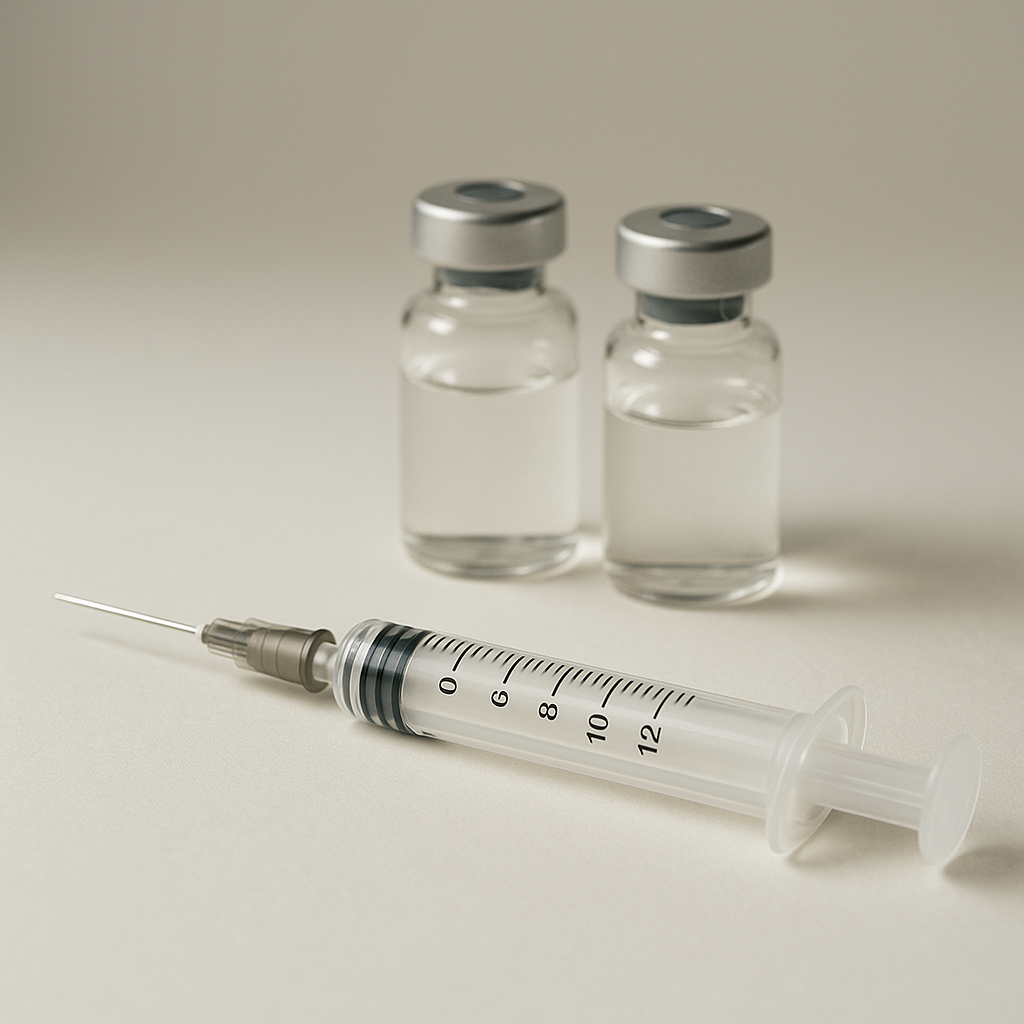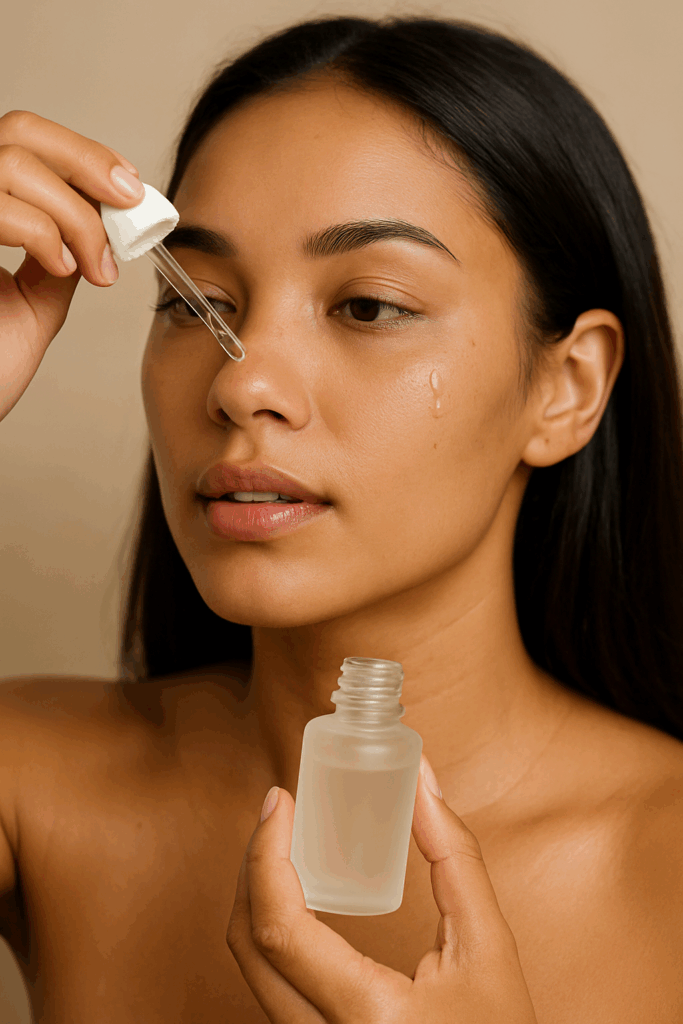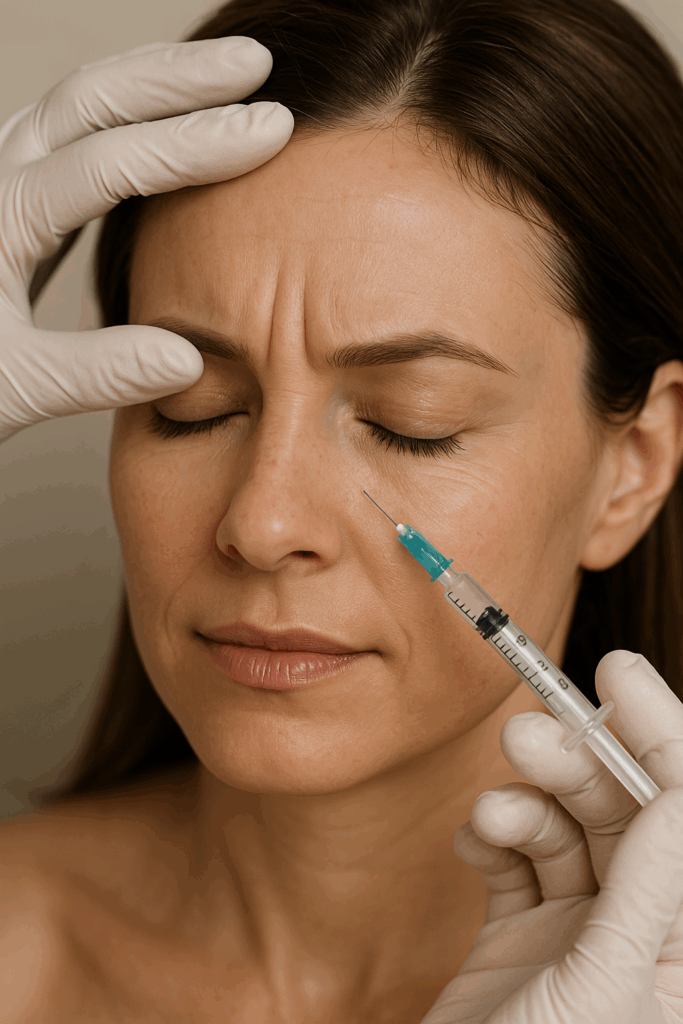When you think about healthy skin, you probably picture glowing, smooth, youthful skin. But what if we told you that all of that beauty comes down to tiny workers you can’t see, skin cells? That’s right, everything from hydration to wrinkles depends on how your skin cells behave. And your skincare routine? It’s their toolbox.
In this article, we’ll break down the different types of skin cells, what they actually do, and how your favorite products help (or sometimes harm) them. By the end, you’ll understand why caring for your skin isn’t just about what you apply, but also how your skin cells respond.
What Are Skin Cells?
Your skin isn’t just one smooth surface. It’s a layered, living structure made up of different kinds of skin cells, each with their own job. They are like a sports team. Your cells are the individual players with an important role to make sure your skin team looks its best. So let’s talk about some of the star players on your skin team:
- Keratinocytes build your barrier.
- Melanocytes protect you from the sun.
- Langerhans cells guard against germs.
- Fibroblasts produce important proteins that give your skin firmness and bounce.
They all work together to keep your skin strong, hydrated, and protected. But as we age, or when skin is exposed to sun, pollution, or harsh products, these cells get tired, slow down, or even stop working as well.
Let’s zoom in on each type and see what they do and how skincare can help.
Keratinocytes: The Barrier Builders
Keratinocytes make up the majority of your skin’s outer layers, which are often referred to as your skin barrier. They grow at the bottom of the epidermis and slowly move up, flattening out into corneocytes, the dead, tough cells that make up your skin barrier.
What They Do In Your Skin:
- Create the stratum corneum, the outermost skin layer.
- Release lipids (like ceramides, cholesterol, and fatty acids) to seal in moisture to prevent TEWL and dryness.
- Produce antioxidants and enzymes to defend against damage.
How Your Skincare Products Affect Them:
- Retinoids (vitamin A) help keratinocytes renew faster, thickening the skin and smoothing texture.
- Ceramide-rich moisturizers strengthen the barrier and reduce water loss.
- Harsh cleansers or over-exfoliation can strip lipids and damage the barrier, leading to dryness and irritation.

💡 Pro Tip: If your skin feels tight or flaky, your keratinocytes may be crying out for barrier support.
Melanocytes: The Pigment Producers
Melanocytes also live in the epidermis and produce melanin, the pigment that gives skin its color and protects against UV damage.

What They Do In Your Skin:
- Give your skin its wanted (and unwanted hyperpigmentation) color.
- Transfer melanin to nearby keratinocytes.
- Act like a natural sunscreen by absorbing UV radiation.
How Your Skincare Products Affect Them:
- SPF protects melanocytes from UV damage, reducing risks like hyperpigmentation or premature aging.
- Niacinamide has been shown to reduce hyperpigmentation by regulating melanin transfer.
- Vitamin C and other tyrosinase inhibitors can disrupt their melanin production to prevent hyperpigmentation

💡 Pro Tip: Wearing daily sunscreen doesn’t just prevent burns, it helps melanocytes stay balanced and avoid overproduction, which can lead to stubborn hyperpigmentation.
Langerhans Cells: The Immune Sentinels
Langerhans cells are your skin’s immune watchdogs. They patrol the outer skin and are among the first to react when something’s wrong.

What They Do:
- Capture invading bacteria, viruses, or allergens.
- Trigger the body’s immune response to protect the skin.
How Your Skincare Products Affect Them:
- Antioxidants help protect these cells from UV and pollution damage.
- Soothing ingredients like panthenol or centella asiatica may support their calming function.
- UV exposure and aging decrease their numbers, weakening your skin’s defense system.

💡 Pro Tip: If your skin suddenly becomes reactive, it could be due to a drop in Langerhans cell function, another reason to wear SPF and protect against inflammation.
Fibroblasts: The Structure Specialists
Fibroblasts live deeper in the dermis and build the skin’s support structure. Structural proteins like collagen, elastin, and hyaluronic acid are all produced by fibroblasts. These are the molecules that give skin its firmness, elasticity, and plumpness.

What They Do In Your Skin:
- Produce collagen I and III for strength and structure.
- Make elastin to keep skin flexible.
- Create hyaluronic acid for hydration.
How Your Skincare Products Affect Them:
- Retinoids stimulate fibroblast activity and reduce enzymes that break down collagen.
- Vitamin C boosts collagen production and protects fibroblasts from free radicals.
- Antioxidants prevent damage to the important proteins fibroblasts produce, leading to sagging, wrinkles, and slower wound healing.

💡 Pro Tip: Anti-aging serums with retinoids or peptides are most effective because they target fibroblasts at the root of skin firmness.
How Skin Cells Change As We Age
As you get older, each of these cell types slows down:
- Keratinocyte turnover slows → rougher, drier skin.
- Fibroblasts make less collagen → wrinkles, sagging.
- Melanocytes become uneven → age spots.
- Langerhans cells decline → more sensitivity.
But here’s the good news: your skincare routine can help support these cells and slow those changes.
Skincare Ingredients That Support Skin Cells
Research backs these effects. For example, one study showed that 1% retinol boosted collagen production and improved skin thickness in just 7 days. Another trial found that ceramide creams significantly reduced water loss and improved hydration in people with dry skin.
| Skin Cell Type | Key Supportive Ingredients | Why It Works |
|---|---|---|
| Keratinocytes | Ceramides, Retinoids | Strengthen barrier, boost turnover |
| Melanocytes | SPF, Niacinamide | Prevent UV damage, regulate pigment |
| Langerhans | Antioxidants, SPF | Protect immune cells from stress |
| Fibroblasts | Retinoids, Vitamin C, Peptides | Stimulate collagen, fight aging |
Final Thoughts: Skincare Is Skin Cell Care
When you apply your favorite serum or moisturizer, think beyond the surface. You’re not just pampering your skin, you’re sending messages to your skin cells. Whether it’s speeding up renewal, calming inflammation, or rebuilding collagen, your skincare products work by influencing how your skin cells behave.
That’s why the best skincare routines are consistent, evidence-based, and gentle on your barrier. Because at the end of the day, great skin comes from great cell health.
References
Brenner, M., & Hearing, V. J. (2008). The protective role of melanin against UV damage. Histochemistry and Cell Biology, 130(5), 539–549.
Chen, Y., Fu, X., Liu, Y., Xu, C., Zhou, L., & Zhu, L. (2023). Aging in the dermis: Fibroblast senescence and its significance. Advanced Science (Weinheim), 10(13), 2206887. https://doi.org/10.1002/advs.202206887
European Commission. (2013). Commission Regulation (EU) No. 655/2013 laying down common criteria for the justification of claims used in relation to cosmetic products. Official Journal of the European Union. (Also relevant: Regulation (EC) No 1223/2009 on cosmetic products).
FDA. (2022). Cosmetics labeling claims: Wrinkle treatments & anti-aging. U.S. Food and Drug Administration. https://www.fda.gov/cosmetics/cosmetics-labeling-claims
Grewe, M., Gyufko, K., & Krutmann, J. (2001). Chronological ageing and photoageing of Langerhans cells. Clinical and Experimental Dermatology, 26(7), 583–587. https://doi.org/10.1046/j.1365-2230.2001.00985.x
Mukherjee, S., Date, A., Patravale, V., Korting, H. C., Roeder, A., & Weindl, G. (2006). Retinoids in the treatment of skin aging: An overview of clinical efficacy and safety. Journal of Drugs in Dermatology, 5(6), 563–568.
Spandidos Publications. (2016). Intercellular and intracellular functions of ceramides in skin (Review). International Journal of Molecular Medicine, 38(1), 16–22. https://doi.org/10.3892/ijmm.2016.2621







